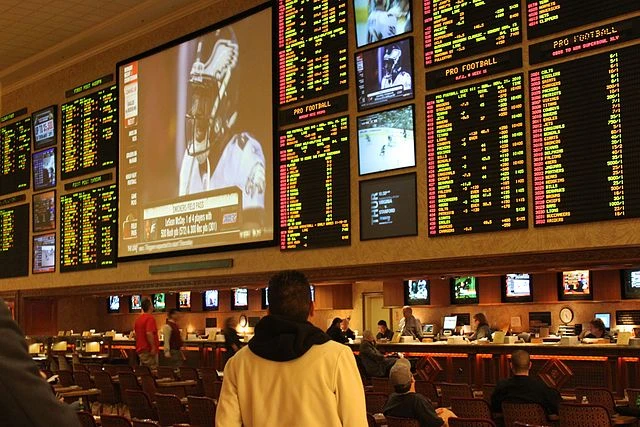Bettor perspective? Walters, “Spanky” say US sportsbooks have much to learn

A panel discussion on Friday (19 July) at the summer meeting of the National Council of Legislators from Gaming States (NCLGS) in Pittsburgh featured views on the subject from legendary sports bettors Billy Walters and Gadoon “Spanky” Kyrollos. Both the legendary Walters, 78, and Kyrollos said sustainability depends on treating sports bettors fairly.
That, they said, means an equal playing field for all customers.
Richard Schuetz, a veteran casino executive, regulator and onetime Las Vegas sportsbook operator, moderated the panel. Schuetz hosted Walters when Schuetz ran the sportsbook at the Stardust.
Transparency, betting limits are concerns
One problem threatening the long-term sustainability of legal sports betting, panelists said, is a lack of knowledgeable operators. “The (legal) industry is new in this country and no-one with knowledge of betting was involved in this process,” Walters said. “(The bettors) need to have a voice.”
Another top concern, he said, is transparency with respect to the odds. Also of concern is the practice of adjusting limits for individual bettors who want to bet big, but are not well schooled in the art of sports betting.
“If you qualify for a sports betting account, you should be treated equally,” Walters said. “And we need transparency; you’re entitled to it. What are the minimum and maximum bets? What are the true odds? Almost everyone will tell you 11-10. People are laying 2-1 on some of these prop bets. You’re entitled to know the true odds of the bet you’re making.”
Walters said he made his first sports bet 69 years ago. “I never thought about sports betting becoming legal,” he said. “When it happened, I may have been the happiest person in the US. I wanted to see it legalised, see the criminal element taken out and have people engage in betting on sports, enjoying it and doing it in a legal fashion.
“I’m here because of very deep concerns about the future of sports betting. Millions who are taking up betting don’t know the real risk prior to making a bet.”
He estimated that 95% of legal books are losing bettors because they don’t adjust their betting lines in reaction to unexpected events like player injuries.
“Ban or bankrupt”
Kyrollos said the problem with many operators is that they always want to win. He said he sees the “ban or bankrupt” attitude sometimes prevalent in European sportsbooks, cropping up in the US.
The term refers to the practice of banning knowledgeable bettors and exploiting novice bettors by manipulating limits. “They’ll either limit the player severely or increase the limit according to their sophistication,” Kyrollos said.
“As a player, you want to be treated fairly. Some operators have teams focused on who they’re going to kick out or limit.… Operators feel they have to beat everyone. It’s a lazy bookmaker mentality. You have to have winners and you have to have knowledgeable people in moving the line.”
Said Walters: “Las Vegas was built on people believing they can win.”
“This is not just a professional bettor problem; it’s a nationwide problem,” said Kyrollos. “We’re trying to create a nonprofit organisation that will give the bettors a voice. If you listen to what consumers have to say, then you can make a better judgement call on how to manage the book.”
The smart play
Schuetz said sportsbook operators will succeed not by banning sophisticated bettors. Instead, operators should learn from them.
“When I was at Stardust, I took Billy Walters’ action,” Schuetz said. “In those days, on big games, we would take bets in briefcases – Billy would get very high limits and, sometimes, he would beat us, enough to make it worthwhile for Billy.
“We were in a continuous effort to collect data. Billy was smarter than us. In business, you should surround yourself with people smarter than you. It’s all about managing risk.”
Schuetz added that in addition to counterproductive practices aimed at winning all the time, many online sportsbooks are making it difficult to withdraw big winnings. “Too many make it difficult to take your money out, with terms and conditions aimed at the winners,” he said. “Sportsbooks need to offer frictionless withdrawals.”
Equal treatment for all sports bettors
Walters said long-term sustainability for the legal sports betting market depends on treating everyone equally. “I want to see states realise income [and] sportsbooks to be successful,” he said. “It’s not about me, it’s about the other 40-50 million people out there betting sports.
“There should be posted limits, treating everyone equally. In this country, we all have the right to be treated equally as long as we’re all playing by the rules. If you don’t have the expertise to treat everyone equally, maybe you shouldn’t be operating a sportsbook.”
Kyrollos commented that changing limits according to the sophistication of the sports bettor leads to problem gambling. “At a $500 limit, a (novice customer) is a sports bettor. At $5,000, he’s a problem gambler.”
The problem with too many of the newly legal online sportsbooks, he said, is that “problem gamblers are their best customers and knowledgeable bettors are restricted.”
In addition, Schuetz said legislators need to be educated about such betting issues. That way, they can create an atmosphere where transparency and data collection level the playing field.
“We have an opportunity to do a reset,” Walters said. “We’re advocating for the industry as a whole and, for this to be successful, you have to consider the sports bettor.”
